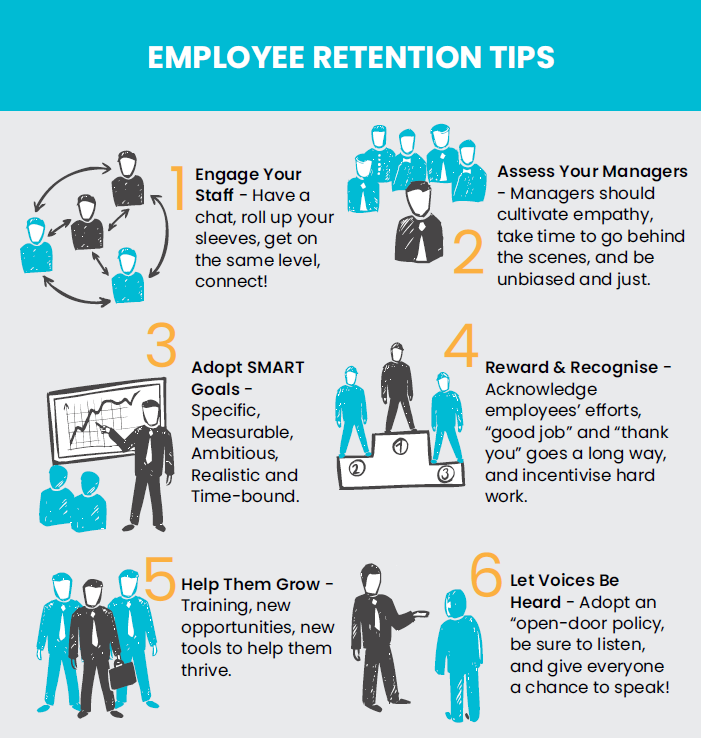Securing the Heart of Your Organisation
By: Carla Lastimosa

Employees are the heart of the organisation and securing high potential talent is key to sustainable growth.
Despite the ongoing challenges of COVID-19, top talent remains in demand. There has been an increase across the board with regards to recruitment and hiring in the Philippines. Companies understand that acquiring and retaining high potential talent will be crucial to enable them to build sustainable operations to position for future growth. We’ve seen a noticeable shift with some of the top talent working overseas being attracted back to the Philippines during the past nine months – invariably linked to job security concerns. This will be a key hiring trend to watch in 2021.
While the global pandemic presents an unprecedented set of circumstances, business leaders across Asia Pacific responded to these global challenges by implementing flexible and remote work policies, digital transformation initiatives to drive efficiency and taking steps to increase and improve internal communications. Most employees prefer a blended combination of remote work and at the workplace.
“In the Michael Page Philippines Talent Trends 2021 Report, our findings show 87% of employees prefer blended flexibility, and having a choice when it comes to working arrangements.”
In the Michael Page Philippines Talent Trends 2021 Report, our findings show 87% of employees prefer blended flexibility, and having a choice when it comes to working arrangements. Organisations must recognise that flexible work arrangements should be tailored to individuals and setting a clear definition of flexible work would be the first step towards nurturing the motivation, performance and engagement levels of employees.
With a heavy emphasis now on virtual relationships, new joiners to most companies complete the interview process and onboarding remotely. Some of these employees lose the feeling of belonging when they join the company as they are unable to set foot in the office nor physically meet with their immediate superior; let alone the entire team. There is a sense of disconnect immediately as it is harder to build rapport with people virtually.
Companies in the Philippines have completely shifted their perspective with regards to employee engagement activities. The level of importance is high as the mode of communication/engagement is purely virtual. Connection needs to be reinforced due to lack of physical interaction between colleagues, therefore companies have to level up the virtual connection with regards to people engagement. There is a growth in Microsoft Teams and Workday usage which are stable communication platforms. Also, some companies are incorporating Data Analytics in HR in order to collate more information in order to enhance the employee experience during the pandemic.

To improve employee engagement, organisations must think beyond monetary benefits to provide an overall well-rounded experience for their employees.
Playing the Branding Game
Employer branding is an important factor to attract job seekers, as professionals begin to rethink their own purpose and values, and whether that aligns with the companies they are working for. Prospective candidates are becoming increasingly empowered with the wealth of information available to them from review sites such as Glassdoor to social media to company websites.
As such, strong employer branding can make the difference in a company’s ability to attract top talent. In a candidate-driven market, top talent considers more than just the remuneration package, but also other factors such as digital strategy, dynamic working, values, identity and purpose, diversity and inclusion, along with environmental and corporate social responsibility initiatives.
Another aspect of talent demands in the Philippines is employee engagement. Especially in times of adversity, communicating with employees is a key element of a company’s long-term success and a strong indicator of the overall culture, values and effectiveness in bringing employees into an organisation. Enacting strong talent retention strategies can also help ensure that the time and resources invested in training new employees are well-rewarded. To improve employee engagement, organisations must think beyond monetary benefits to provide an overall well-rounded experience for their employees.
Enriching the Employee Experience

With existing employees, some companies are more proactive when it comes to employee engagement. These include informal connects with hiring managers, dinner vouchers/ meal reimbursements, coffee sessions, sending food/product hampers or virtual game nights.
Competent, passionate, and hands-on leadership will help send a message that your employees’ contributions are valued, creating goodwill and a desire to succeed – both as an individual and as part of the team. Secondly, providing growth opportunities and a clear development plan shows you care about helping your employees maintain job satisfaction.

Acknowledging hard work and efforts goes a long way.
A good way to inspire employee confidence is to start with your management. The number one reason workers leave their job is because of poor management. This means the first step any company should take to ensure employee retention is assessing its managers. Firstly, it is important to clearly state fair goals. Employees get frustrated when their jobs are fuzzy with objectives. A good strategy to increase retention rates is to adopt SMART goals: Specific, Measurable, Ambitious, Realistic and Time-bound. Keeping expectations clear and fair is a simple idea for companies looking to retain their staff. Only when goals are the right mixture of SMART components will an employee feel satisfied with the content of their work.
With the ongoing war for talent predominantly in the IT, E-commerce, Fintech, Healthcare and Supply Chain sectors, a number of activities and performance reviews take place in order to manage salary expectation during the year-end discussions. Making employees feel valued goes beyond just monetary benefits.
To ensure employees feel recognised, it is important to notice and acknowledge their efforts. Regardless of length of tenure, a simple “good job” or “thank you” from a superior goes a long way. It shows management cares about employees on a personal level and reaffirms that their efforts have been noticed. This can be done by rewarding hard workers or incentivising hard work. Good rewards can include awards, allowing a late arrival or early marks if goals are achieved, or even throwing office parties or shouting dinner to celebrate key milestones. Remember you can reward a single employee, a group, or even an entire department. Be sure to acknowledge staff when the company does well, too.

Every staff member contributes to your business, so their voices want to be heard when something is wrong.
It is also very important to listen to your employees, especially in times of change and adversity. Every staff member contributes to your business, so their voices want to be heard when something is wrong. Adopt an open-door policy so staff members can keep managers in the loop when something is making their jobs more difficult than it needs to be. During company meetings, allow everyone a chance to speak. This lets them voice their opinions while giving them the feeling their opinions matter and will be taken onboard. Be sure to actually listen, too! If their complaints aren’t dealt with, they’ll begin to feel ignored – a huge factor in a poor staff retention rate.
People are the heart of your organisation, and with the workforce no longer tied to having one career, job stability, and linear progression, employers need to adapt their talent retention program in order to keep up – or risk losing their best team members to other companies.
Employee Retention Tips


Carla joined Page Group in 2012 after 9 years of professional recruitment experience. Based in the Kuala Lumpur office, Carla manages the recruitment of executive-level and senior management-level candidates in the corporate functions, human resources as well as the procurement, supply chain, manufacturing and engineering sectors within Michael Page Philippines.
As a Director in the business, Carla recruits primarily in C-level positions and senior management functions in the Philippines. Carla’s recruitment experience totals more than 18 years of which she has amassed broad knowledge of multiple industries including Industrial, FMCG, E-commerce, Retail, 3PL and Services. She has completed her Bachelor’s in HRM from University of Santo Tomas, Philippines and pursued her MBA with Edith Cowan University through a local program in Malaysia.






